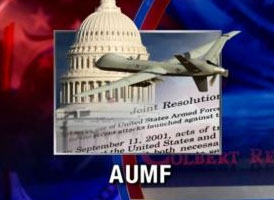The 2001 Authorization for the Use of Military Force (AUMF) that followed 9/11 has been broadly interpreted by presidents since then as allowing them to launch limitless wars, and for some time there’s been interest among some in Congress toward challenging this, ending the old AUMF and replacing it with real, specific authorizations for specific wars.
 The October 4 ambush in Niger, which led to the deaths of four US special forces, has added to that push in a big way, because not only was this operation obviously not ever authorized by Congress, but in this case Congress wasn’t even told it was happening.
The October 4 ambush in Niger, which led to the deaths of four US special forces, has added to that push in a big way, because not only was this operation obviously not ever authorized by Congress, but in this case Congress wasn’t even told it was happening.
Sen. Tim Kaine (D-VA) and others are very vocal about not liking just how out of the loop Congress has become on wars like the one in Niger. President Trump has suggested his generals authorized the Niger war by themselves, and it doesn’t appear he knew about it either.
Even more ominous is that the 1,000 troops in Niger are just a fraction of the over 20,000 US troops deployed overseas in unidentified places, meaning that there are countless other operations ongoing that are just as unauthorized.
Congress has been struggling for years with getting the leadership to allow votes on War Powers Act-related bills, as war authorizations are politically controversial and many of the leaders simply prefer to dodge those matters. This has been going on so long, however, that it’s going to take substantial efforts for Congress to reestablish itself as responsible for authorizing wars.


